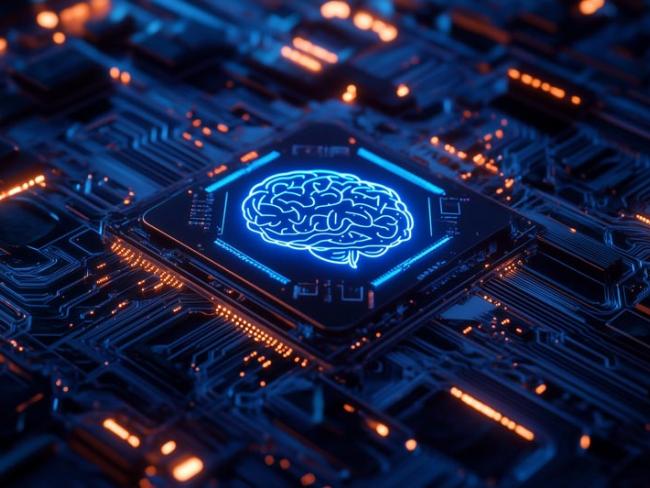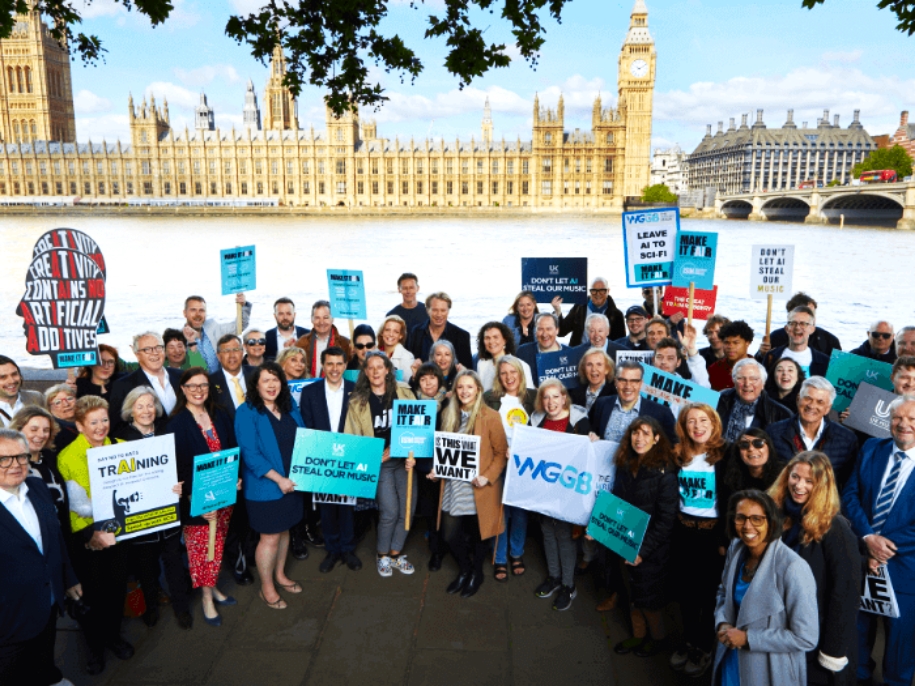
Anggalih Prasetya/shutterstock.com
Artificial intelligence is touted as a means to boost economic growth. It is of course a great step forward and has great potential. But workers – especially in the creative industries will have to find ways to exercise control…
The ruling class will inevitably seek to use AI against workers, as they have done with every step forward in technology. Creative workers are among the first to feel this – and they are beginning to respond.
Trade unions representing workers in the arts and professions where creativity has a big role to play have cooperated over the past year, advising members about intensified exploitation and the danger to livelihoods.
It is a complex issue, with no single definition of AI. One useful description is “technologies with the ability to perform tasks that would otherwise require human intelligence”. Research by Equity, Musicians’ Union, National Union of Journalists (NUJ) and the Writers’ Guild has resulted in clear analysis of the subject and detailed advice for each sector.
Equity (representing mainly actors, singers and media workers) explains that AI aims to produce a close approximation to how humans learn, reason, carry out tasks and make decisions. It does so by training itself on vast amounts of data.
AI encompasses a wide range of technologies, including machine learning, deep learning, neural networks, expert systems, and robotics. But of most relevance to creative workers is generative AI, which can create new content, such as text, images, audio, or computer code.
Generative AI output can resemble human-created content or synthetic media, but cannot replicate the creativity, emotion and authenticity performers bring. AI can help the creative process, but has already started to replicate aspects of performers’ roles.
Replacement
The trend of trying to replace human decisions is likely to increase as the technology develops. Equity emphasises the importance of being a trade union member as the best way to deal with these threats. But it also points out possible benefits too, if controlled by performers.
“If AI is applied ethically and responsibly in collaboration with workers and their trade union, it has the potential to positively impact performers,” the union says
For example AI could help performers appear in multiple productions across a single period and improve income; increase accessibility for deaf and disabled performers; enhance safety for stunt performers; and aid dubbing and automated dialogue replacement.

Equity spells out the dangers to all aspects of work, dangers that are similar across the sector – and echoed by the other unions. Job loss is the most obvious: 65 per cent of performers surveyed thought that AI technology poses a threat to employment. Notably, over 90 per cent of audio artists felt AI would affect their opportunities.
Pay is another obvious area of concern. One-off payments to performers for AI work often do not reflect that their contribution may be used forever, on thousands of occasions.
Agreements for AI performance are inadequate and poorly understood. Performers don’t even know where their work is being used. And 80 per cent of those surveyed didn’t have a full understanding of their rights before signing a contract for AI work.
Poor employment practices are commonplace in the arts. Adding AI into the mix can only make this worse. Equity and other unions try to control this through collective bargaining. But the new technology is challenging across the globe as it would not be covered in historic collective agreements.
Creative expression is at risk too. Technologies such as the creation and use of digital replicas remove agency from the performer. This cuts opportunities to perform in person and removes incentives for people to train and enter artistic work.
Stop stealing the show
By using their power through trade unions, creative workers are beginning to find that they can prevent even the largest corporations using AI to more intensively exploit them. Due to their innovative campaign, “Stop AI Stealing the Show”, Equity members have achieved a huge victory, with the government abandoning a damaging data mining exemption.
Equity’s next priority is, “…to integrate ethical terms and conditions for AI work into working practices through collective bargaining.” The union believes the strength of the industry is built on strong and equitable collectively bargained agreements with engagers, including the BBC, ITV, Sky, Netflix, Disney+, and Apple+, but they need strengthening. The union is also exploring new partnerships with digital cloning companies presently operating outside of agreements.
All the unions advocate for an artist-centred approach to safeguard their members. For example, Equity’s AI Vision Statement outlines core principles for the industry to adopt when engaging artists for performance cloning. The aim is that performers have the contractual right to informed consent, control, fair compensation and transparency.
Protecting copyright
Many generative AI platforms create new material using original creative work without a licence. This infringes workers’ intellectual property and legal rights, which remain poorly protected under British law against AI abuse.
The government says it wants to make Britain a global AI superpower. But rather than introducing regulation, they propose a voluntary code of practice for the industry. Technology companies developing AI are generally resistant to challenges; their business model seems to rely on free use of material generated by others.
Creative sector unions are alert to the need to tackle the dangers to members and their copyright work in the training of generative AI. Equity, for example, is seeking “…a constructive dialogue with producers…to ensure…informed consent, transparency and compensation” for all use of its members’ work.
Most script writers, music composers and authors join their professional bodies, the Mechanical Copyright Protection Society (MCPS) and the Performing Rights Society (PRS). They work in a coordinated way to collect and distribute royalties on original works.
Both societies are analysing and making policy on the effects of AI. MCPS has updated its membership agreement, disallowing registration of 100 per cent AI-generated works. In other words, only the human contribution would be recognised.
‘Intellectual property rights are poorly protected against AI abuse…’
A report launched on 4 June revealed how generative AI is already having profound impacts on Britain’s creative economy. Compiled by Queen Mary University of London, The Institute for the Future of Work and The Turing Institute the report called for urgent action to protect creative workers. The Musicians’ Union is already campaigning on those lines. It held a protest on 7 May as the Data Bill was passed without safeguards against generative AI. But along with others it continues to press for urgent action.
Journalists are in jeopardy from AI too. The NUJ’s campaign calls for urgent regulatory oversight that includes promoting ethical approaches that safeguard the work of its members. It is calling for engagement with journalists and those whose work is used in AI technology.
The NUJ cited breaches of intellectual property rights, inaccurate data used in AI-generated stories, false attributions to journalists, and more. These “…directly threaten journalism and risks the reputation of every journalist abiding by ethical standards to ensure accuracy and honesty through their work.”
Some final words include those of the authors Val McDermid and Chris Brookmyre. Chris discovered that twelve of his books had been recognisably plundered by AI, angrily pointing out that he “had given permission for precisely zero to be used to train AI” while Val urged fellow authors to use the search function and find out if their works had been used. The campaign continues to expand, bringing in the Writers’ Guild and the Society of Playwrights.
A major struggle is under way to prevent the productivity screws being tightened on workers by stealing and exploiting their creative and original talents.
